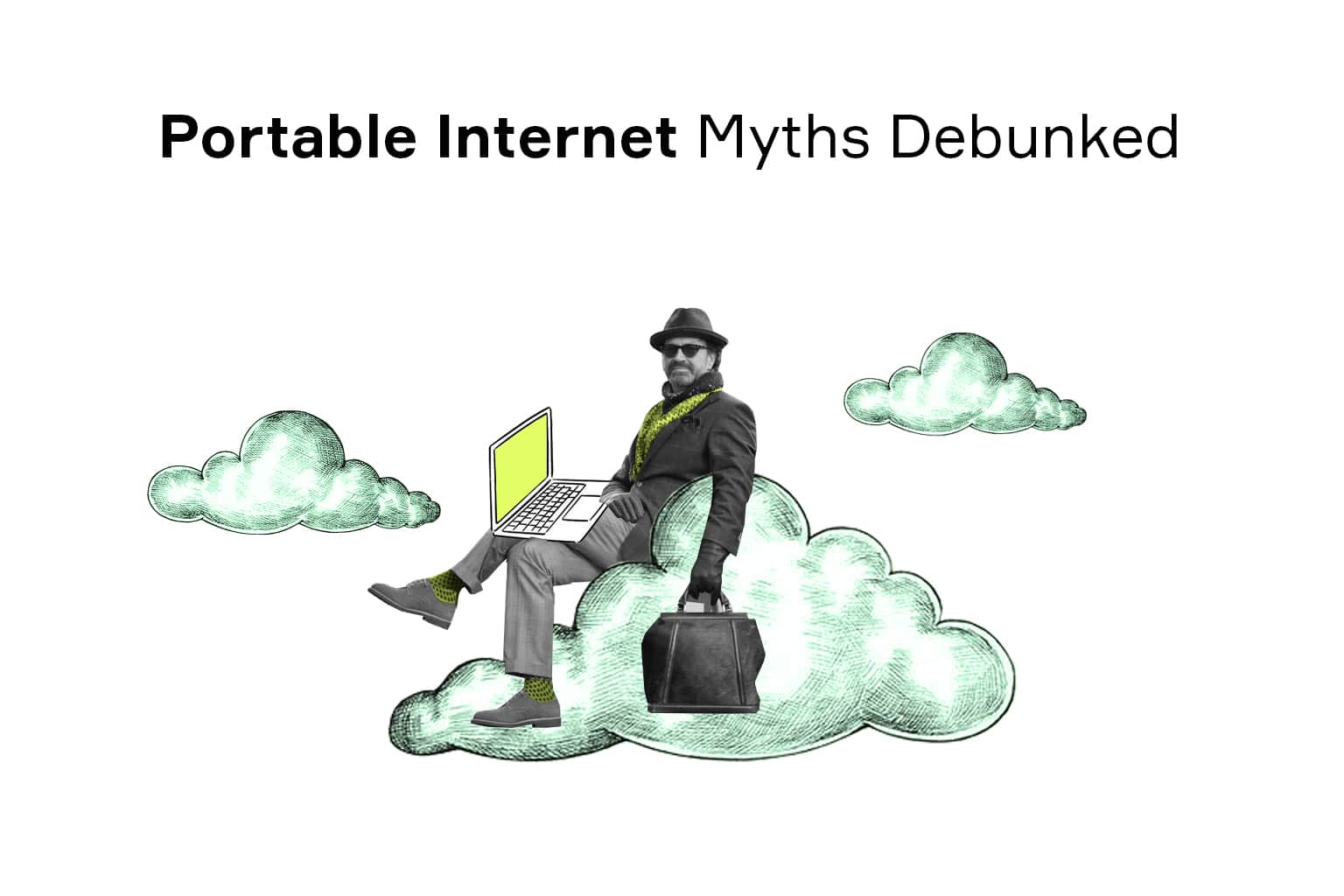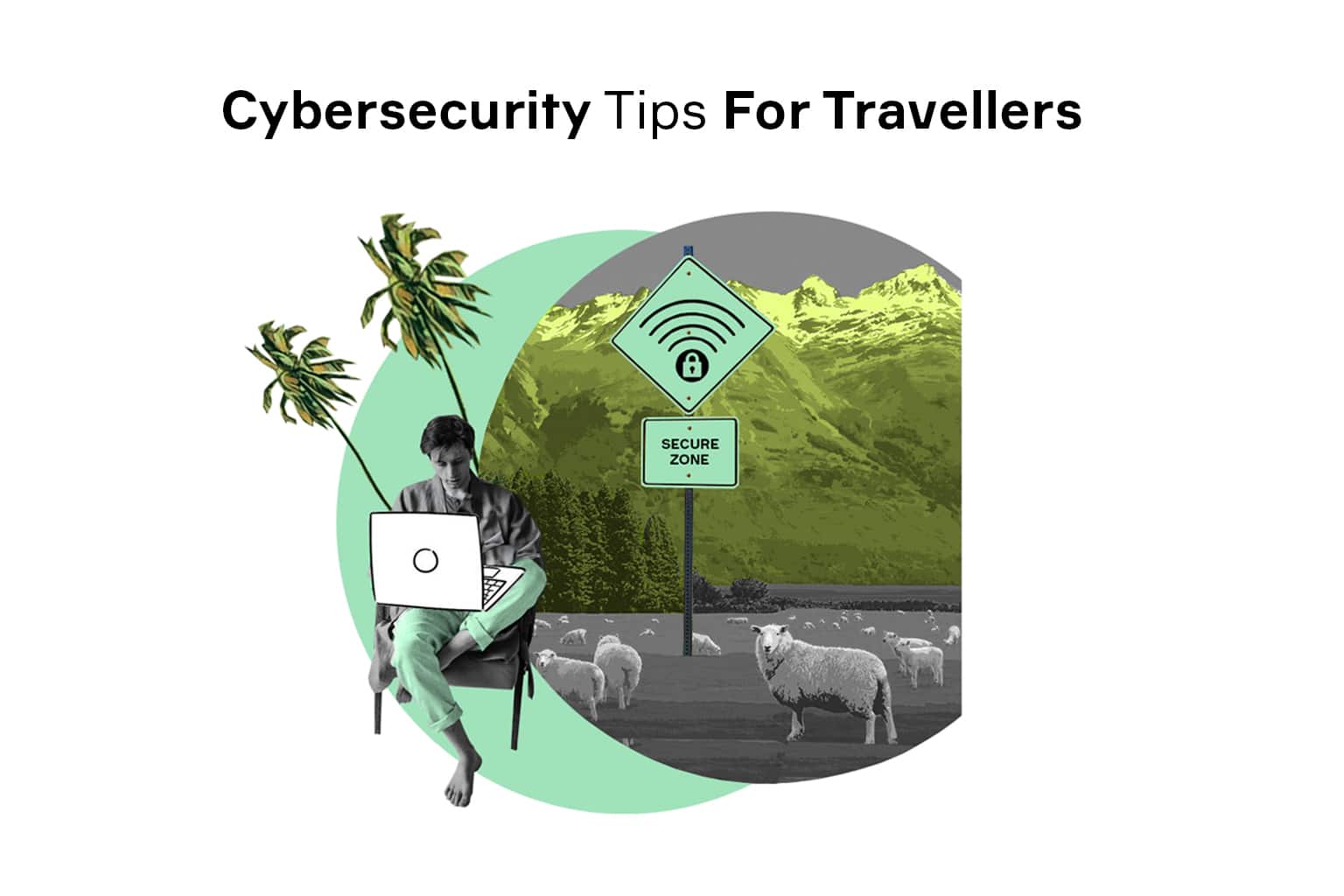
The good old days of careless Internet surfing are over, with personal data quickly becoming a desirable target for corporations and criminals. Solution to this problem is a VPN – a piece of software that provides a private and secure Internet connection topped with neat features — the ability to bypass censorship. To help you choose the best VPN modem, we have compiled a guide covering all the basics of this soon-to-become indispensable technology.
VPN: A Quick Introduction
With online security being both an important issue and a great selling point, the term VPN is thrown around the web a lot, often to describe different technologies and services. This certainly doesn’t help to understand already complex technology. So, to clear things up a bit here’s a quick rundown on what a VPN is and what to do with it.
What is a VPN?
A VPN (virtual private network) is a technology that creates a sort of a tunnel within a public network where you can transfer data discretely and securely. Essentially, a VPN lets you enjoy all the private network benefits: convenience, security, functionality.
What does a VPN do?
In the simplest terms, it creates a point-to-point connection and routes all your data through it. This method hides your online activity from prying eyes, and also provides access to otherwise unavailable locations.
How does a VPN work?
The most common arrangement is this: a service has several private-access servers in different locations worldwide. Your device establishes a private connection with one of these servers. Alternatively, a tunneling protocol is used – basically a smart way to create a secure connection without dedicated hardware.
What is the purpose of a VPN?
Initially, VPNs were created to simulate private networks’ functionality over the Internet (think accessing your office network from home). Nowadays, they have two primary purposes: providing privacy and circumventing restrictions.
Does VPN hide IP?
Yes, it does. Inside the private network, you are communicating with the web through another server. So, instead of your IP address, the service on a receiving end sees the address your VPN service shows to it. Some VPNs let you choose from several different addresses.
Software VS Built-In VPN

Virtual private networks come in many flavors. However, from the consumer perspective, they can be divided into software and hardware ones. The former includes online services that offer secure access for a fee. As a rule, they have the advantage of being easy to use and less expensive.
Things like a VPN router and modem fall into the second category – devices that provide private internet access. In the early days of the Internet, these were expensive and complex pieces of equipment built with security and reliability in mind and intended mainly for corporate use. Nowadays, thanks to the staggering pace of innovation, you can find a cheap VPN modem that would combine the ease of software services with the robustness of a dedicated device.
Benefits of a VPN
VPNs were initially meant to enable network functionality over the Internet. Once people became aware of cyber threats, and the concept of cyber-hygiene came to the fore, the principal technology’s use shifted towards security. Nevertheless, VPNs still offer a broad range of benefits.
Privacy
Any online activity, from surfing the web to using video streaming services, leaves a digital footprint. In the right hands, this footprint can tell about you more than you would be comfortable with. With automation and neural networks, the threat of identity theft becomes more real than ever, which is perhaps the chief reason behind VPN’s popularity. The secure connection created by a VPN is impenetrable to outside observers, so no-one can access your data or even understand what it is that you are doing. It also obscures your IP, which prevents services from knowing where you are from.
Security
With more and more personal data being entrusted to online devices, a safe Internet connection becomes a priority for individuals and businesses. VPN solves this by encrypting the connection so that even if your data is intercepted, it is virtually impossible to read. This aspect makes VPNs perfect for corporate applications for transferring proprietary information. Still, having an extra layer of security to protect your credit card ledger won’t hurt either.
No Regional Restrictions
Many online services nowadays practice geo-blocking – restricting access from specific locations. They do this for different reasons – some perfectly legitimate (like copyright and licensing intricacies), others less so (preventing access to stores with cheaper goods). With a VPN, it becomes possible to bypass these restrictions in the truly libertarian fashion and overcome unfair business practices.
Bypassing Censorship
Unfortunately, trying to extract extra money from customers is not the only example of geo-blocking being used for nefarious purposes. In many regions of the world, authoritarian governments use it to disempower people through censorship. Even if you are lucky enough to live in a free society, you can still stumble upon such a thing when you travel and fall under the restrictions of a local provider. With the Internet being considered one of the basic human rights, VPN becomes less of a consumer hack and more of a necessity.
No Throttling
Internet providers are no strangers to unfair business practices as well. The most notorious one is throttling – the tendency to limit bandwidth after some data has come through the network. However, with communication occurring over a private tunnel, there is no way to tell how much data was used, so you can always get the speed you paid for in the first place.
Remote Access
Despite it being very much a consumer product, VPN still does fulfill its initial promise of being a private network. So, if you need to access, say, a home IoT device network, you can configure it to do the task.
How to set a VPN on the modem?
- Choose the right service plan
- Configure the service
- Select the preferred location
- Activate the VPN
One of the difficulties of choosing the best home VPN device is the sheer number of solutions. These range from simple on-off arrangements that have trouble launching to a slew of features built in VPN that require a master’s degree in engineering to configure it.
We believe that the best VPN modem has to be configurable just enough to not get in the way of users, which is why nect MODEM strikes a balance between simplicity and versatility. The private network option comes with some of our modem’s subscription plans and can be activated with a push of a button. If certain services require this, you can then select from several countries, and you’re all set, with no messy command lines or custom firmware involved.
VPN Modem: From Luxury To Necessity
We live in a world where data is the ultimate asset, and there is no way back. However, there may be a way forward. Using the best VPN modem, you can regain control over our personal information and send the message to corporations that our right to privacy is something to be reckoned with. And, while you’re at it, you can enjoy all the neat bonuses like better deals in online shops, faster connection speeds, and more freedom.
All illustrations are created by Lucy Ivanova, a Chief Creative Officer at nect.



